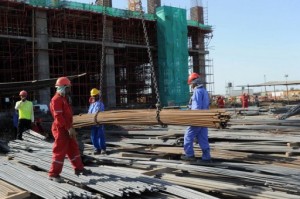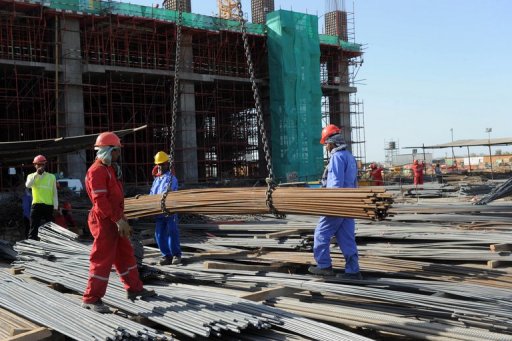 NEW DELHI (AFP) – Investors are hoping India’s Prime Minister Manmohan Singh, whose radical reforms transformed the country’s economy two decades ago, can work his magic once again after he took charge of the finance ministry.
NEW DELHI (AFP) – Investors are hoping India’s Prime Minister Manmohan Singh, whose radical reforms transformed the country’s economy two decades ago, can work his magic once again after he took charge of the finance ministry.
On Friday investors drove the benchmark Sensex share index to a two-month high, spurred by hopes that the 79- year-old could put the mojo back into India’s once-booming economy, after growth slumped to its slowest pace in nine years.
“He’s got the economy’s pulse. There’s a lot of hope building that he will take some right steps,” Amisha Vora, joint managing director of one of India’s top brokerage houses, Prabhudas Lilladher, told AFP.
A survey of India’s top 150 chief executives carried out by business group Assocham found expectations of “renewed energy being infused” into the economy since the ex-World Bank economist took control of the finance ministry last week.
Singh, who replaced veteran politician Pranab Mukherjee after he stepped down to run for India’s mainly ceremonial presidency, has already spoken of the need to revive the economy’s “animal spirit”.
“We need to work to get the economy going again and restart the India growth story,” Singh told senior finance ministry officials last week, calling for a reversal of the climate of pessimism.
As finance minister in 1991, Singh ignited the fuse for rapid growth as India teetered on bankruptcy, by embracing free markets and cutting through suffocating red tape.
Many had hoped that as prime minister he would execute a “second-generation” of changes to propel growth into double-digits and allow hundreds of millions of Indians to escape poverty faster.
But his Congress Party-led coalition has dismayed investors by being unable to push through planned reforms due to opposition from within and a string of multi-billion-dollar corruption scandals.
While his rallying cry last week improved business sentiment, analysts say he must now find the deeds to match his words.
“He will have to walk the talk and there will have to be a political sign-off from coalition allies on his actions,” CLSA economist Rajeev Malik told AFP.
The prime minister has already signalled India may back away from moves that have rattled foreign investors, including efforts to aggressively tax past transactions involving companies like British phone giant Vodafone.
“If Singh reversed even the Vodafone decision, that would restore tremendous foreign investor confidence in India,” Deepak Lalwani, head of London-based investment consultancy Lalcap, told AFP.
Analysts say Singh could stay at the helm of the finance ministry until November before naming a permanent replacement for Mukherjee, in order to help put the economy back on a reform track.
Global ratings agencies have warned they may downgrade India’s debt to junk status with the economy reeling from high fiscal and current account deficits and stubbornly strong inflation.
The economy grew by 5.3 percent between January and March as industrial growth slowed to a crawl. The rupee has lost a quarter of its value against the US dollar over the last 12 months to hit record lows.
Among the initiatives analysts are hoping for is the revival of plans to allow foreign supermarkets, such as US giant Walmart, to own 51 percent of Indian operations that could bring billions of dollars in investments.
Others include the simplification of land acquisition for industrial projects and permitting foreign airlines to buy up to 49 percent of domestic airlines, which could help the cash-strapped aviation sector.
Singh, who is not expected to continue as prime minister after the 2014 elections, is keen to protect his reputation as the father of India’s economic reform, analysts say.
His personal reputation has taken a beating during the government’s second term, with critics describing him as the dithering captain of a rudderless administration.
“This is a golden chance for him to erase the damaging things that have been said about him — that he has been a very weak leader,” said Vora.
“He would not like to retire with the reputation of the man who brought all those economic reforms (in 1991) but who then ended his career by screwing up the economy.”




